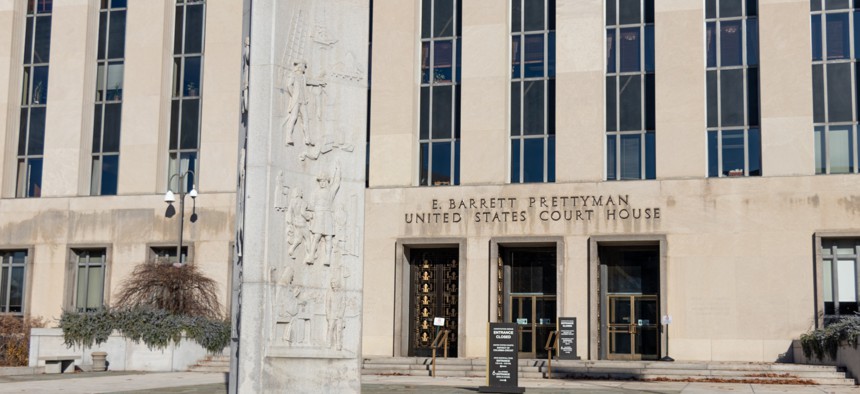
Friday's preliminary injunction blocks all federal employees, save President Trump, from implementing the provisions of either the executive order or OPM’s subsequence guidance for implementing it. The Bold Bureau / Getty Images
Judge blocks Trump’s anti-union executive order
U.S. District Judge Paul Friedman on Wednesday expressed skepticism that the president could legally strip two-thirds of the federal workforce of their collective bargaining rights.
A federal judge in Washington, D.C., on Friday issued a preliminary injunction blocking the Trump administration from implementing a March executive order that purported to strip collective bargaining rights from two-thirds of the federal workforce.
Last month, President Trump signed an executive order citing a rarely used provision in the 1978 Civil Service Reform Act to bar unions from representing workers at a myriad of federal agencies, from the Defense and Homeland Security departments to the Internal Revenue Service and the Environmental Protection Agency, under the auspices of national security.
Agencies, under direction from the Office of Personnel Management, have thus far refrained from formally terminating union contracts while the administration awaits the result of two lawsuits filed against unions in Trump-friendly courts. But they have taken several steps to abrogate those agreements in practice, including ending participation in bargaining negotiations and grievance procedures and surreptitiously ending the automatic deduction of union dues from federal workers’ paychecks.
In a short two-page filing, U.S. District Judge Paul Friedman granted the National Treasury Employees Union’s request for a preliminary injunction, finding the executive order—and OPM’s subsequence guidance for implementing it—to be “unlawful.” It blocks all federal employees, save President Trump, from implementing the provisions of either document.
A full opinion explaining the judge’s reasoning will be published “within the next few days,” according to the order.
During oral arguments in the case Wednesday, Friedman took issue with the president’s determination that agencies such as the Federal Communications Commission and the Agriculture Department had a “primary function” of national security. And he seemed to agree with the union’s assertion that the executive order amounted to retaliation against labor groups that have challenged the White House’s workforce policies in court.
The injunction comes just ahead of the April 26 deadline for agencies to submit recommendations for additional bargaining units across government to target with the Civil Service Reform Act’s so-called national security exemption.
How are these changes affecting you? Share your experience with us:
Erich Wagner: ewagner@govexec.com; Signal: ewagner.47
NEXT STORY: To support or to sabotage: Public service and public servants in an American democracy







